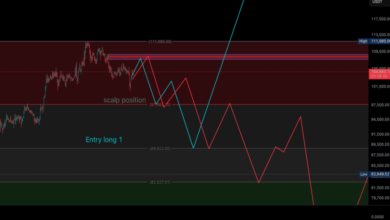How to File an Insurance Claim After a Disaster

Disasters can strike without warning, leaving behind devastation and confusion. Whether it’s a fire, flood, storm, or act of vandalism, the aftermath often includes the overwhelming task of filing an insurance claim. Unfortunately, navigating this process isn’t always straightforward—especially when you’re trying to recover emotionally and financially at the same time.
This is where hiring a licensed public adjuster, such as Dillon Public Adjusters, can make a significant difference. These professionals work on behalf of policyholders—not insurance companies—to ensure fair and full claim settlements.
What Is a Public Adjuster?
A public adjuster is a state-licensed insurance expert who represents the policyholder during the insurance claim process. Unlike insurance company adjusters who work for the insurer, public adjusters work exclusively for you, the policyholder.
Their responsibilities include:
- Evaluating property damage
- Reviewing your insurance policy
- Preparing detailed claim documentation
- Negotiating with the insurance company
- Helping maximize your settlement
In essence, a public adjuster ensures that your best interests—not the insurer’s bottom line—are the priority.
See also: How Ai-Powered Lip Syncing Is Transforming Dubbed Videos
Common Disasters That Require Claims
Public adjusters are most often called in for high-value or complex claims, especially after major incidents like:
1. House Fires
Fire can cause extensive damage, including smoke damage, structural loss, and ruined contents. Estimating the full value of loss requires careful assessment—something a trained adjuster is equipped to handle.
2. Flooding
Standard home insurance often doesn’t cover floods, making it important to know the fine print of your policy. Public adjusters can help interpret coverage and uncover gaps you might miss.
3. Storm Damage
Hurricanes, hail, and windstorms can cause everything from roof damage to broken windows and water intrusion. These claims often include complex repair estimates, temporary housing, and additional living expenses.
4. Vandalism and Theft
These claims require a detailed inventory of lost or damaged items, police reports, and proper valuation—all areas where a public adjuster adds major value.
Why Insurance Claims Get Undervalued
Many policyholders assume that the insurance company will take care of everything fairly. Unfortunately, that’s not always the case. Insurers may:
- Underestimate repair or replacement costs
- Deny portions of the claim
- Delay payment
- Use ambiguous language in the policy to limit payout
A Rhode Island public adjuster can help challenge these tactics by presenting strong evidence and accurate valuations, often leading to significantly higher settlements.
The Claims Process: Step-by-Step
Understanding what happens during a typical insurance claim can help prepare you for what’s ahead:
Step 1: Report the Damage
Notify your insurance provider as soon as possible. Take photos and videos of the damage and make temporary repairs if needed (save receipts).
Step 2: Review Your Policy
Your policy outlines what is covered, how much is covered, and under what conditions. This step is often confusing—especially if exclusions or limitations apply.
Step 3: Contact a Public Adjuster
Hiring a public adjuster early means they can inspect the damage, document losses, and handle communications with the insurer from the start.
Step 4: Submit the Claim
The adjuster compiles an itemized loss report, including structural, personal property, and business interruption losses (for commercial clients).
Step 5: Negotiate Settlement
Public adjusters negotiate directly with the insurance company’s representatives to secure the best possible payout based on your coverage.
Residential vs. Commercial Claims
Both homeowners and business owners can benefit from public adjuster services, but the claims process may differ depending on the property type.
For Homeowners:
- Focus is typically on property structure, belongings, and temporary housing
- Emotional stress plays a large role in decision-making
- Delays or low offers can prolong recovery
For Business Owners:
- Business interruption, lost revenue, and damaged inventory are also considered
- Claims may require financial documentation and specialized knowledge
- A delayed settlement could mean loss of customers or permanent closure
In both scenarios, having a knowledgeable advocate like Dillon Public Adjusters ensures your rights are protected.
Legal Protections for Rhode Island Residents
Rhode Island law requires public adjusters to be licensed and to act in the best interest of their clients. State regulations ensure that:
- Public adjusters work on a contingency basis (you pay only if you get paid)
- Contracts must be transparent and fair
- Adjusters follow strict ethical guidelines
This legal framework gives Rhode Islanders peace of mind when choosing to work with a public adjuster.
When Should You Hire a Public Adjuster?
Not every insurance claim requires one—but you should consider hiring a public adjuster when:
- The damage is extensive and will cost thousands to repair
- You don’t fully understand your policy terms
- You’re not satisfied with the insurer’s estimate
- You don’t have time or expertise to manage the paperwork
- Your claim is partially or fully denied
Hiring a public adjuster is especially beneficial when the financial stakes are high or when the claim process is emotionally overwhelming.
Real Results: What a Public Adjuster Can Deliver
Case studies have shown that claims handled by public adjusters are, on average, settled for up to 700% more than those handled by policyholders alone. This is because public adjusters:
- Know what documentation insurers require
- Understand how to interpret technical language in policies
- Are skilled negotiators
- Know the true market value of repairs and contents
This isn’t just about maximizing money—it’s about getting what you’re owed under your policy terms.
What to Look for in a Public Adjuster
Not all adjusters are created equal. When choosing a professional, make sure they:
- Are licensed in your state
- Have experience with your type of claim
- Provide clear communication and updates
- Offer transparent fee structures
- Have positive reviews and client testimonials
Choosing a local expert, such as a Rhode Island public adjuster, gives you someone who understands local building codes, weather risks, and common claim types in your area.
Final Thoughts: Take Control of Your Recovery
Filing an insurance claim after a disaster can feel like one more crisis on top of another. Between paperwork, phone calls, inspections, and negotiations, it’s easy to get overwhelmed—or worse, shortchanged.
Working with an experienced and licensed advocate like Dillon Public Adjusters can help you avoid costly mistakes, save time, and secure the full value of your insurance coverage. Whether you’re facing fire damage, flood loss, or commercial property destruction, the right support makes all the difference in how quickly—and completely—you recover.





